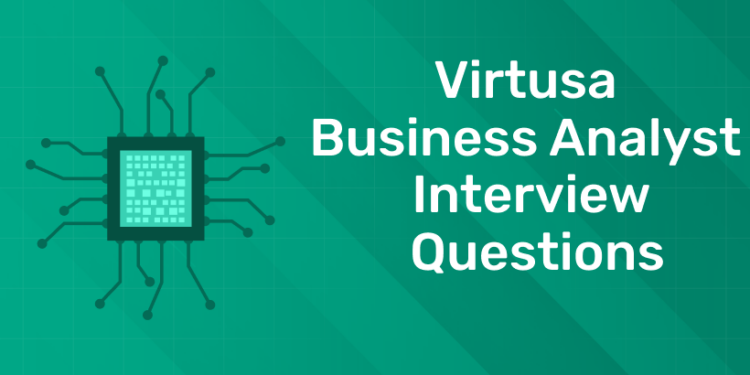Table of Contents
Virtusa, a global leader in technology services and consulting, is known for its innovative approach to solving complex business challenges across industries. As a Business Analyst at Virtusa, you’ll play a pivotal role in bridging the gap between business needs and technical solutions. Preparing for a Virtusa Business Analyst interview requires a blend of domain knowledge, technical expertise, and strong problem-solving skills. In this blog, we’ll explore some of the most commonly asked Virtusa Business Analyst interview questions, along with tips and strategies to help you excel.
Enhance your data science skills with us! Join our free demo today!
Why Join Virtusa?
- Virtusa operates globally, serving clients across industries, including banking, healthcare, telecom, and technology. This provides exposure to diverse markets, projects, and opportunities for international assignments.
- This company is known for delivering cutting-edge solutions in digital transformation, cloud computing, and AI. Employees work on innovative projects using the latest technologies.
- Virtusa offers robust training programs, certifications, and learning platforms to help employees upskill.
- The company fosters a collaborative work environment where teamwork and diversity are valued. Employees have the opportunity to work with talented professionals worldwide.
- Employees are recognized for their excellence and high performance. It offers competitive compensation packages and performance incentives.
Top Virtusa Business Analyst Interview Questions and Answers
1: Which of the following algorithms is most suitable for classification tasks?
Preparing for a Business Analyst (BA) interview at Virtusa requires familiarity with both technical and domain-specific questions. Below is a list of potential questions and suggested answers:
General Questions
What are the key roles and responsibilities of a Business Analyst?
- Understanding business needs and gathering requirements.
- Analyzing and documenting processes, workflows, and system functionalities.
- Bridging communication between stakeholders and technical teams.
- Creating functional specifications, use cases, and user stories.
- Supporting project implementation and ensuring deliverables align with business goals.
How do you handle conflicting requirements from stakeholders?
Listen: Understand each stakeholder’s perspective.
Prioritize: Use prioritization techniques like MoSCoW (Must Have, Should Have, Could Have, Won’t Have).
Facilitate Collaboration: Arrange discussions or workshops to reach a consensus.
Escalate: If needed, involve higher management for resolution.
Scenario-Based Questions
Describe a challenging project you worked on as a Business Analyst. How did you handle it?
Outline the challenge (e.g., conflicting requirements, tight deadlines).
Explain the actions taken (e.g., facilitating discussions, using Agile techniques).
Highlight the outcome and lessons learned (e.g., successful delivery, improved stakeholder alignment).
How would you approach analysing a new business process?
- Understand Objectives: Identify the purpose of the process.
- Map the Process: Create flowcharts or diagrams.
- Identify Bottlenecks: Spot inefficiencies or pain points.
- Engage Stakeholders: Validate findings with process owners.
- Propose Improvements: Suggest automation or optimization.
Technical Questions
What tools and techniques do you use for creating documentation?
Tools: MS Office, JIRA, Confluence, Visio, Lucidchart, or BPMN tools.
Techniques: Use cases, user stories, process modeling, wireframes, and prototypes.
What is the difference between Agile and Waterfall methodologies?
- Agile: Iterative, flexible, and collaborative; suitable for dynamic projects.
- Waterfall: Linear and sequential; best for well-defined projects with stable requirements.
Behavioral Questions
How do you ensure effective communication with both technical and non-technical stakeholders?
- Use clear, jargon-free language for non-technical stakeholders.
- Provide detailed technical documentation for developers.
- Use visual aids like flowcharts and prototypes to bridge understanding gaps.
- Schedule regular meetings to ensure alignment.
Describe a time when your suggestion improved a business process.
Situation: Explain the original process and its inefficiencies.
Action: Outline the improvements proposed (e.g., automating a manual process).
Result: Highlight the measurable impact (e.g., time saved, cost reduction).
Virtusa-Specific Questions
Why do you want to work at Virtusa as a Business Analyst?
Mention the following:
- Virtusa’s focus on digital transformation aligns with my career goals.
- Its diverse client base provides opportunities to work on innovative and challenging projects.
- The company’s emphasis on learning and growth resonates with my professional aspirations.
How do you align Virtusa’s Engineering Excellence Framework with BA deliverables?
- Ensure all deliverables follow the framework’s principles of innovation and quality.
- Leverage tools and methodologies endorsed by Virtusa for efficient project execution.
- Continuously seek opportunities to add value through automation and optimization.
🚀 Start Coding Today! Enroll Now with Easy EMI Options. 💳✨
Equip yourself with in-demand skills to land top-tier roles in the data-driven world.
Start Learning Now with EMI OptionsInterview Tips
- Learn about Virtusa’s core services (digital transformation, cloud, AI, and consulting) and its Engineering Excellence Framework.
- Review their projects by looking for recent success stories, case studies, or press releases to understand their approach to solving business problems.
- Brush up on business analyst fundamentals.
- Learn the required tools.
- Virtusa emphasizes practical problem-solving. So practice scenario-based questions.
- Highlight your soft skills.
- Practice with peers or mentors to improve confidence. Simulate both technical and behavioral questions to get comfortable with different formats.
Conclusion
Virtusa is ideal for individuals seeking growth, technical challenges, and opportunities to impact digital transformation projects across industries. Landing a business analyst role at Virtusa is an excellent opportunity to work at the forefront of digital transformation, contributing to impactful projects across diverse industries.
Enhance your data science skills with us! Join our free demo today!












